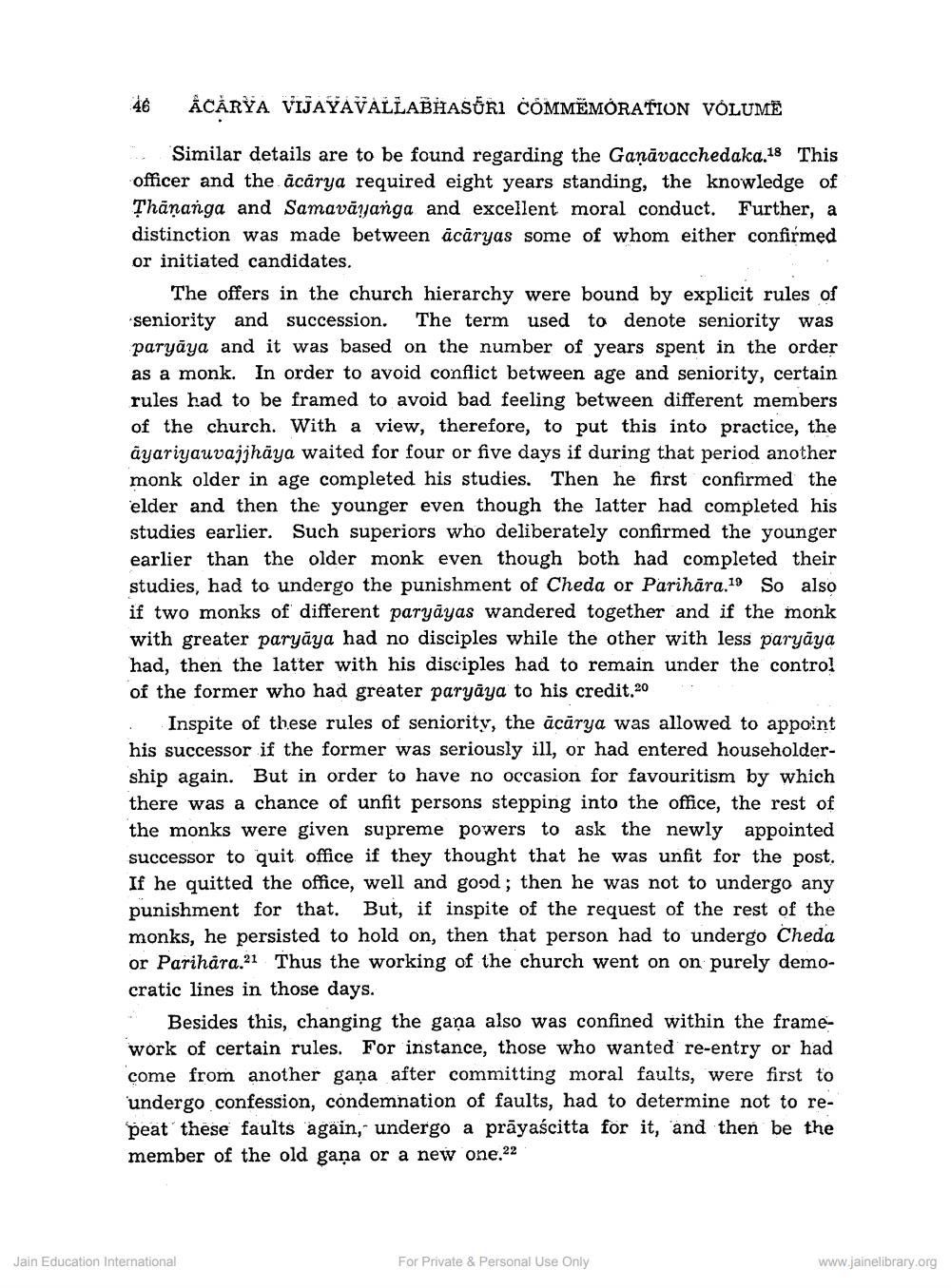Book Title: Some Aspects of Jaina Monastic Jurisprudence Author(s): S B Deo Publisher: Z_Vijay_Vallabh_suri_Smarak_Granth_012060.pdf View full book textPage 6
________________ 46 ÅCĂRYA VIJAYAVALLABHASŐRI COMMEMORATION VOLUME Similar details are to be found regarding the Gaņāvacchedaka.18 This officer and the acārya required eight years standing, the knowledge of Thānanga and Samavāyanga and excellent moral conduct. Further, a distinction was made between acāryas some of whom either confirmed or initiated candidates. The offers in the church hierarchy were bound by explicit rules of seniority and succession. The term used to denote seniority was paryāya and it was based on the number of years spent in the order as a monk. In order to avoid conflict between age and seniority, certain rules had to be framed to avoid bad feeling between different members of the church. With a view, therefore, to put this into practice, the ayariyauvajjhāya waited for four or five days if during that period another monk older in age completed his studies. Then he first confirmed the elder and then the younger even though the latter had completed his studies earlier. Such superiors who deliberately confirmed the younger earlier than the older monk even though both had completed their studies, had to undergo the punishment of Cheda or Parihara.19 So also if two monks of different paryāyas wandered together and if the monk with greater paryāya had no disciples while the other with less paryaya had, then the latter with his disciples had to remain under the control of the former who had greater paryāya to his credit.20 Inspite of these rules of seniority, the acārya was allowed to appoint his successor if the former was seriously ill, or had entered householdership again. But in order to have no occasion for favouritism by which there was a chance of unfit persons stepping into the office, the rest of the monks were given supreme powers to ask the newly appointed successor to quit office if they thought that he was unfit for the post. If he quitted the office, well and good; then he was not to undergo any punishment for that. But, if inspite of the request of the rest of the monks, he persisted to hold on, then that person had to undergo Cheda or Parihara 21 Thus the working of the church went on on purely democratic lines in those days. Besides this, changing the gaña also was confined within the framework of certain rules. For instance, those who wanted re-entry or had come from another gana after committing moral faults, were first to undergo confession, condemnation of faults, had to determine not to repeat' these faults again, undergo a prāyaścitta for it, and then be the member of the old gana or a new one.22 Jain Education International For Private & Personal Use Only www.jainelibrary.orgPage Navigation
1 ... 4 5 6 7 8 9 10 11 12 13 14
